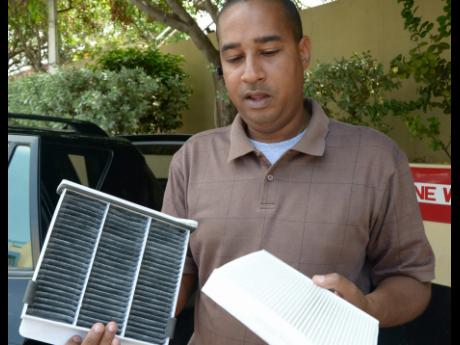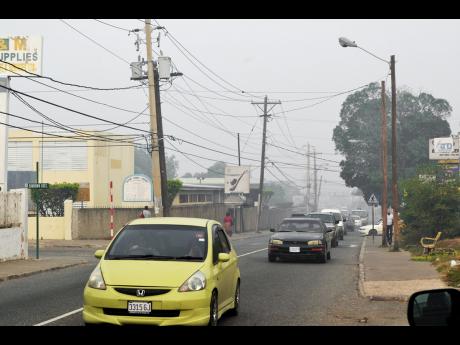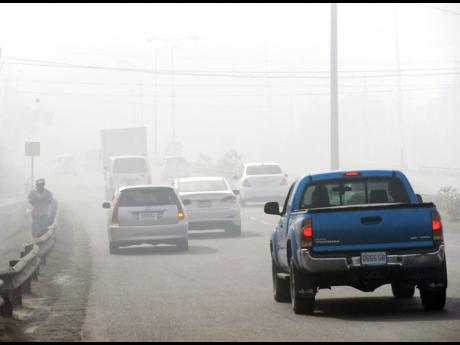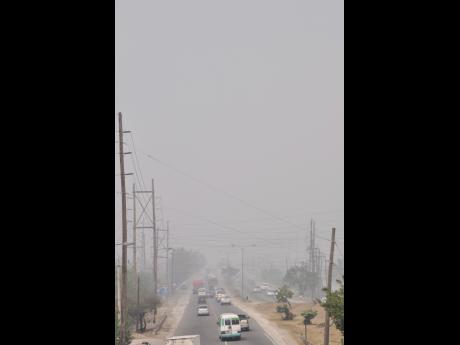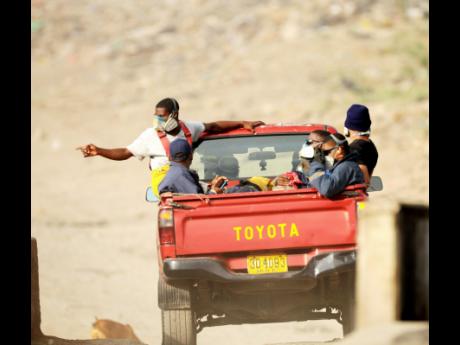Filters smoked out
Riverton fire affects air-conditioning component
Motorists who travel regularly through the Corporate Area, and especially those who live or work near the Riverton City landfill, are being advised by owner of T and T Auto Cooler Limited Derrick Taylor to check their vehicle's air-conditioning filter.
This is after the most recent fire at the landfill, more popularly known as Riverton Dump, which began on March 11. While the resulting smoke affected much of urbanised Kingston and St Andrew and parts of St Catherine, areas such as Spanish Town Road, the Mandela Highway, and along Washington Boulevard were especially heavily affected.
The air-conditioning filter, also called the cabin air filter, traps particles in the vehicle's air vents which would otherwise get into the car and affect the passengers. While most are located in the dashboard behind the glove box, there are those that are mounted against the firewall in the engine bay.
In 2013, auto technician Brian Holler told Automotives that many times, motorists are unaware that their vehicles are equipped with cabin air filters and are, therefore, unaware of the potential perils if they are not cleaned regularly.
"The cabin air filter is a purifier for the air that comes through the air-conditioning vents. In the car, you can circulate air, or you can get air coming from outside. The blend door opens and closes, so with most cars, the filter fits right over the blower motor. It traps dirt particles that are coming from outside and then filtrates clean air through the bottom section. It stops dust mites and bacteria that come into the car," Holler explained.
The filter, which varies in size among different vehicles, acts as a buffer against smoke, pollen, leaves and insects and needs to be checked regularly. It is usually recommended that when purchasing a replacement, which is likely to cost a little over $4,000 inclusive of labour cost, the vehicle identification number must be provided to the seller in order to receive the correct filter.
"We usually recommend changing it in a cycle of six months. But if you work in an environment like the bauxite and cement companies, then we recommend you change it every three months. Based on the disaster at Riverton, we recommend a frequent change," Taylor stated.
Harmful effects
Taylor said that in the event that contaminated outside air does get inside the vehicle through the air-conditioning unit, it is likely to cause respiratory illnesses for the driver and other passengers. There might also be a foul odour inside the vehicle.
However, Taylor acknowledged that mechanisms inside the vehicle have been improved to prevent outside air from coming inside.
"The filter only filters the air that comes through the vent. If you have the windows up and you have the recycle on, then it only recycles the air that is in the car and not outside," he explained.
Taylor's advice about changing the filter follows the recent alarming findings of an air quality test, which were announced on Monday. According to acting Chief Medical Officer Dr Marion Bullock DuCasse, the test for volatile organic compounds shows that benzene was at the highest level ever recorded by the ministry.
According to the Health Ministry, prolonged or long-term exposure to benzene has been blamed for cancers such as leukaemia.
The Centres for Disease Control, USA, defines long-term exposure to benzene as being for over a year.
Bullock DuCasse said last week that "based on what we are seeing now and the period of this fire, we would not be expecting to have any of those long-term effects unless there was more prolonged exposure such as months into years".
While no deaths have been reported due to the fire, a number of persons have had to seek medical attention because of the smoke. Chief executive officer of Medical Associates Hospital, Dr Michael Banbury, said the situation was the worst he had seen it in his 32 years of practise.
He recommended masks for motorists who use Spanish Town Road and persons who live in communities exposed to the smoke from the Riverton landfill.

